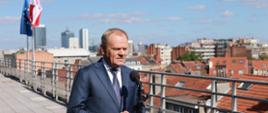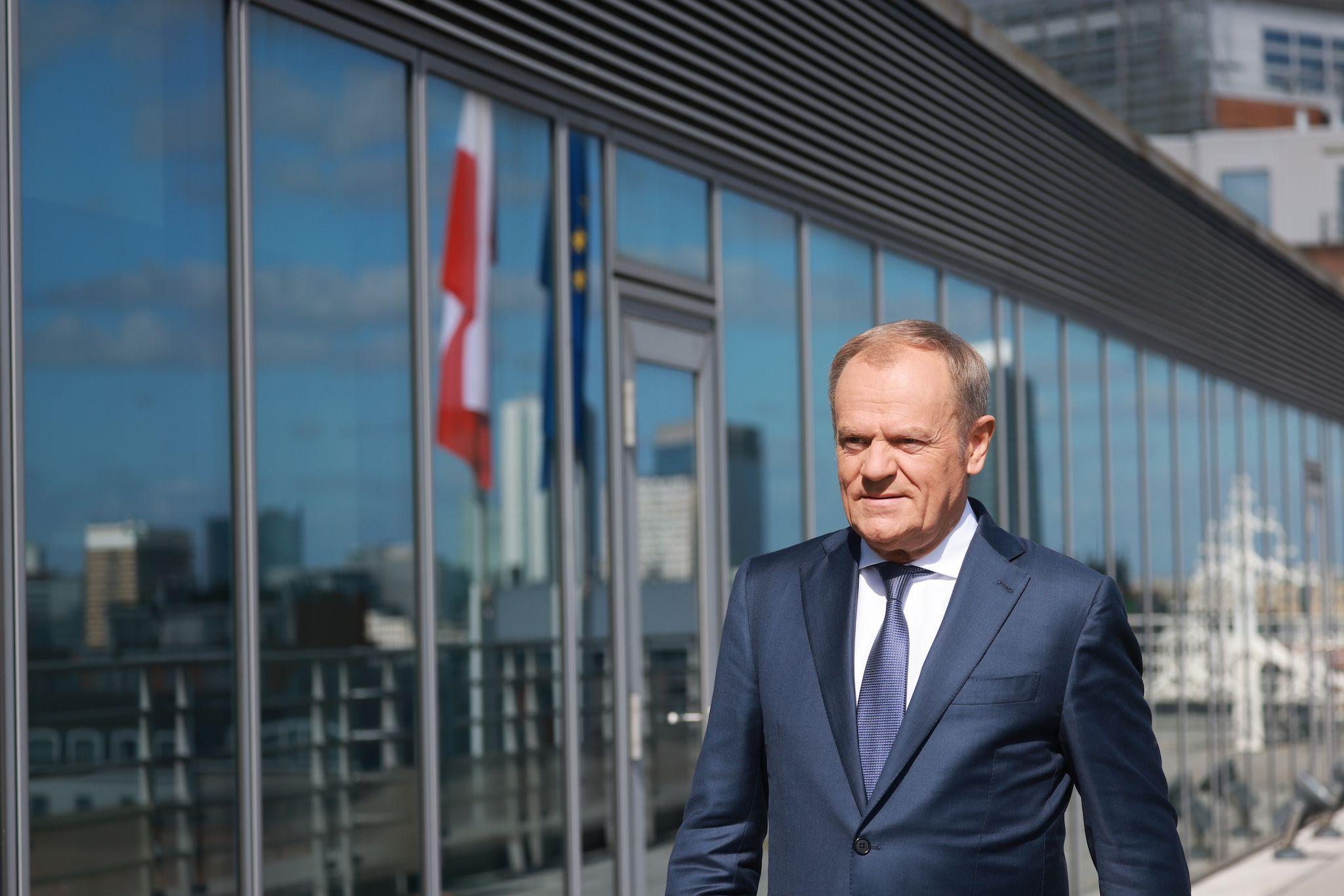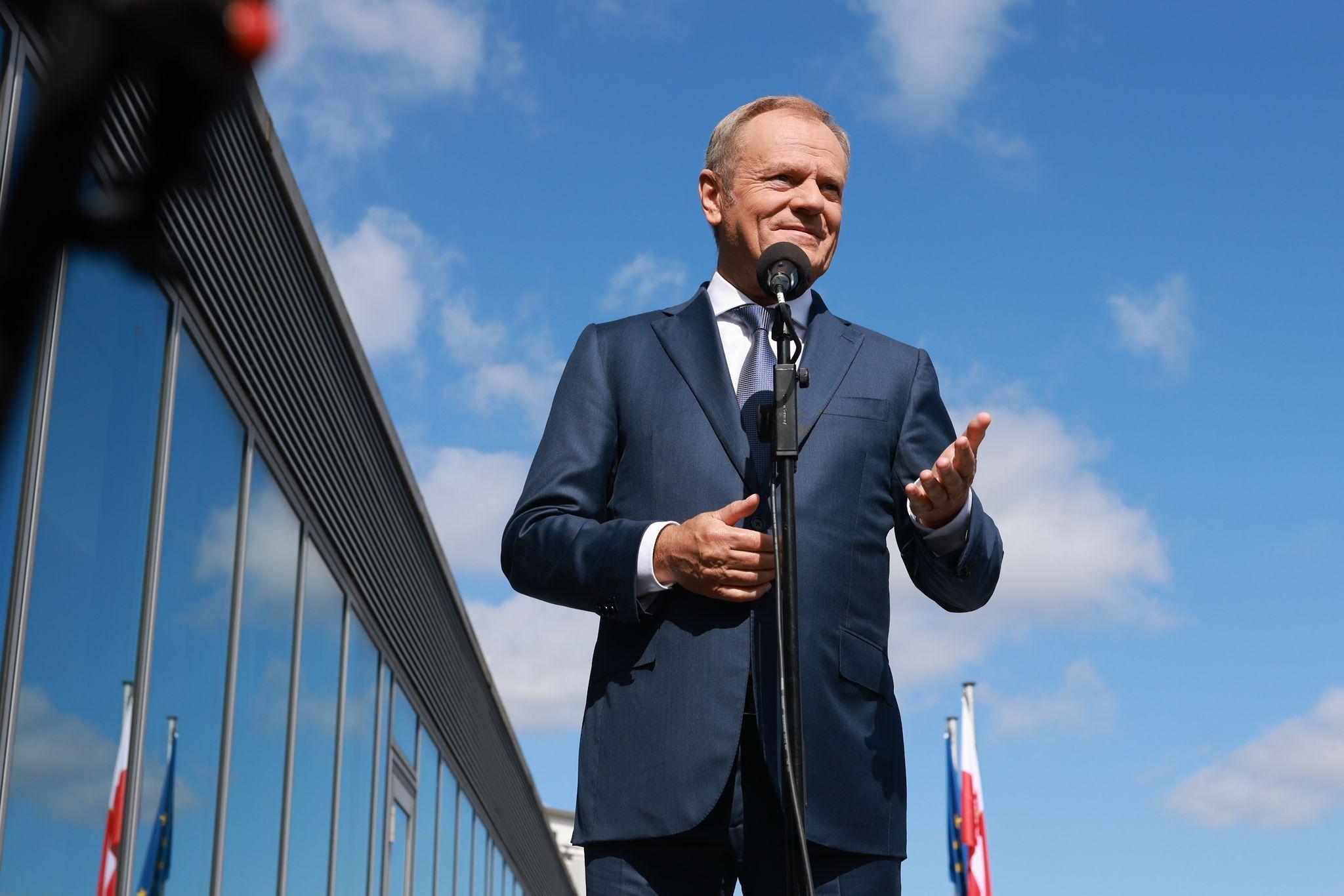Strong, safe and predictable Europe
28.06.2024
During a European Council meeting on 27 June in Brussels, heads of states chose the representatives for the most important posts in the Community. Ursula von der Leyen will remain President of the European Commission. Kaja Kallas, Prime Minister of Estonia, will be in charge of diplomacy, while Antonio Costa, former Prime Minister of Portugal, will lead the European Council. This is the outcome of negotiations involving Prime Minister Donald Tusk and other politicians, which took place over the course of the past several weeks. During the summit, Poland managed to achieve its key objectives concerning defence and convinced its partners to support Polish initiatives on the joint defence of the European skies and eastern border of the European Union as part of the Shield East project.

In a statement issued shortly after the reaching the consensus, the Prime Minister stated that he was satisfied after the European leaders chose the right people for key positions, as these candidates are good from the point of view of Polish interests.
Kaja Kallas, the candidate from our region, will serve as the EU Minister for Foreign Affairs. The nomination for Kaja Kallas was crucial for me. Her views on Russia, Belarus, Ukraine, as well as enlargement of the European Union reflect Poland’s stance on these matters,” said Donald Tusk.
The appointment of these officials concludes an important phase concerning the organisation of EU leadership, and the Polish Prime Minister was keen to finish this task as quickly as possible, seeing how Europe faces the challenge of bolstering its defence capabilities against the emerging threats.
Poland’s demands concerning defence in the Union's 5-year strategic agenda
Prime Minister Tusk, together with Greek Prime Minister Kyriakos Mitsotakis, announced their plans to establish the European air defence shield back in May. Today, this initiative is undertaken by the entire Union.
Thanks to Poland's proactive stance, the European Union has understood that Russia threatens more than just the neighbouring states and that protecting the European sky is crucial for the entire Community.
“For many years, Poland was alone in the matters of defence, in its assessment of Ukraine, as well as its perception of Russia. In a way, Poland was a pioneer in Brussels. And that can be difficult, to stand alone among twenty-seven countries. Today, we are leading the vast majority,” the Polish Prime Minister pointed out.
Mr. Tusk convinced all countries - including the initially sceptical Germany and France - to take responsibility for the safety of the skies over Europe as one. This is not going to be the an uncoordinated and fragmented effort of a single country. Instead, it will be a joint measure. The European Union will co-finance these initiatives, mobilising public and private resources for defence and security.
“Polish defence demands are now a part of the overall EU strategy. They are included not only in the conclusions of the European Council, but also in the strategic agenda for the next five years," Mr. Tusk pointed out.
The same applies to the issue of the Russian and Belarusian border.
We have combined the Polish Shield East plan with Baltic States’ initiative concerning the construction of the so-called Baltic Defence Line, and presented this as a joint project. We faced some disagreements among the Member States, but eventually the initiative was passed,” Prime Minister Tusk revealed.
He pointed out that the overwhelming majority of leaders in Brussels are now supporting Poland’s position, which they see as an important point of reference in the matters regarding border security.
Agreement with Ukraine
Following the outbreak of full-scale war in February 2022, the matter of Ukraine is debated at virtually every European Council summit. During the meeting between Prime Minister Tusk and President Volodymyr Zelenskyy, both politicians raised the issue of a bilateral security agreement between our countries.
“I can say with 99% certainty that we are going to sign this agreement with President Volodymyr Zelenskyy in Warsaw before the NATO summit," he claimed.
The matter of Ukrainian security weighs heavily on Polish security; however, the government will not undermine Poland’s defence capabilities in any way while offering support to Ukraine.
The European Union has also concluded a security agreement with Ukraine, pledging to provide the necessary political, financial, economic, humanitarian, military and diplomatic support to Ukraine and its people for as long as it is necessary.
Defence expenditure
Poland stands out in terms of its defence spending in relation to GDP. While in Brussels, Prime Minister Tusk raised the issue of the excessive deficit procedure launched against Poland by the European Commission.
“The excessive deficit procedure is a consequence of Poland taking on the financial burden of defending not only our country, but the entire European Union,” Donald Tusk pointed out.
The Polish Prime Minister mentioned hoping that the European Commission would take into account the fact that Poland has to spend considerable sums on its defence in connection with the Russian threat when preparing its recommendations concerning the excessive deficit procedure.
***
The changes on the top positions in the European Union are the direct result of the European Parliament elections in June, which saw the European People's Party (EPP) winning the most seats with more than 26% of the vote. Prime Minister Donald Tusk was one of the key negotiators in the appointment process, working hand in hand with the President of France, the Prime Ministers of Spain, Greece, the Netherlands and the German Chancellor. Following the European Council's decision, the candidate for the President of the European Commission has to be supported by the European Parliament.



